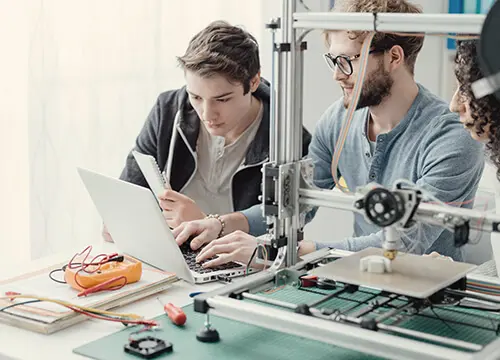Introduction to AGH University's Material Science and Engineering Excellence
AGH University of Science and Technology in Krakow, Poland, has a long-standing reputation as a leading institution in engineering and technology. Founded in 1919, the university has excelled in various fields, notably in materials science and engineering. Its Faculty of Foundry Engineering is at the forefront of metallurgical engineering education, specializing in foundry technology, alloy development, and advanced simulation techniques.
The Challenge: Navigating the Complex World of Alloy Information
In the Faculty of Foundry Engineering, Dr. Renata Zapała, an Assistant Professor, leads the way in metal alloys research. Her expertise lies in the intricate details of metal alloys' chemical compositions, properties, and specifications, making her an invaluable asset in both academic and research capacities.
Before the integration of a comprehensive materials information platform, Dr. Zapała faced significant hurdles in accessing detailed alloy information, a process that was often laborious and time-consuming, involving numerous hard-copy documents and catalogs.
Streamlining Research with Advanced Digital Solutions
For her research, Total Materia’s main materials information platform, Horizon, proved invaluable. Dr. Zapała utilized it to verify alloy compositions, and mechanical and physical properties, greatly increasing the efficiency and accuracy of her work. The intuitive interface and the wealth of information available facilitated her research endeavors, especially in the preparation of scientific publications. In addition, Horizon’s ability to offer direct comparisons of materials and quick access to a wide range of standards significantly benefited Dr. Zapała's work, illustrating the importance of advanced tools in the field of materials science.
In addition to her research work, Dr. Zapała's has integrated the use of the Horizon platform into her teaching curriculum. Horizon’s extensive resources and user-friendly interface enabled her to provide a more interactive and informative educational experience, greatly benefiting her students. Her approach involved initially guiding her students through the process of utilizing the platform to search for and analyze materials. This hands-on experience has enabled her students with the skills to independently explore the platform, allowing them to delve deeper into the chemical compositions and properties of selected materials. This familiarity with the platform’s functionalities has proven to be invaluable, as many students continue to apply these skills in their thesis work and research papers.
Realizing the Benefits: Enhancing Productivity and Knowledge
The adoption of the Horizon materials information platform brought with it several advantages, notably in time savings and the quality of research output. Dr. Zapała experienced a notable improvement in her ability to quickly access comprehensive data on alloys, which was instrumental in her scientific publications and teaching.
Dr. Zapała advocates for the use of such digital tools in materials science, emphasizing their role in simplifying complex research tasks and enhancing educational outcomes. This advancement in accessing and utilizing material data has enabled her to contribute more effectively to her field, marking a significant step forward in her career as a materials scientist and educator. Her experience serves as a beacon for efficiency and innovation in the ever-evolving world of materials science.

